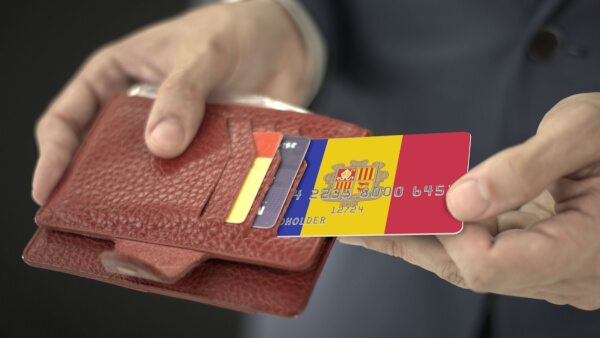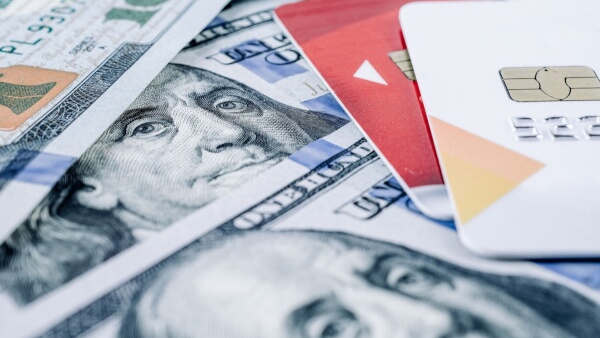Best savings accounts for non-UK residents
Read our roundup of the best savings accounts for non-UK residents, including options from Barclays, HSBC Expat, NatWest and Skipton International.

From the bustling capital of Nairobi, to its glorious beaches and wildlife reserves, Kenya is full of adventure. It’s also full of opportunity, thanks to its rapidly developing economy and service industry. That means that many new expats are moving, to join the already established ranks of foreigners who came to Kenya to make a new life for themselves.
Whether it’s joining friends and family, building your career, or simply kicking back with a Tusker lager to watch the legendary African sunset, there are plenty of reasons you might want to settle in Kenya.
If you’re thinking of moving to Kenya as an expat, one of the first things you'll need is a local bank account. This guide gives you all you need to know about opening a bank account in Kenya - so let’s get started.
Foreigners can open a bank account in Kenya, but you will usually need to be living there already - or have an address. This is because most banks in Kenya will require proof of residency and address in order to open a bank account¹.
So, you may not be able to apply for your Kenyan bank account while still in the UK, and will need to wait until you arrive in the country and have all the relevant documents in order to get your banking set up.
However, it never hurts to get in touch with a selection of Kenyan banks in advance, to find out the requirements and whether there are any specialist accounts available for non-residents.
The paperwork needed by Kenyan banks varies depending on the bank and the account type, so it pays to check exactly what’s needed before your appointment.
If you’re opening a standard current account, you’re likely to need documents including some of the following¹:
In many cases, you’ll have to visit a bank in person, and take along the required documents. There are some exceptions though, such as the mobile only KCB M-Benki account³. Standard Chartered also let you open some accounts through their mobile app for Android and iOS⁴.
It’s usually possible to make an initial enquiry online, but you’ll find that you’re asked to go along to the bank to show your paperwork before your account can be activated.
If you have a work/residence permit, along with the relevant visa for Kenya, you may be able to start the process of applying for your Kenyan bank account from abroad. You’ll have the proof of residence required, and you may even have a Kenyan address.
Many banks will let you start the application process online from overseas, even if it’s just an initial enquiry. It could even be worth contacting the bank to see if you can get even further, as different banks have their own procedures.
However, in most cases, you’ll need to visit a local branch of the bank in Kenya in person to verify your ID, present your documents and complete the process.
Kenya has a developed banking sector, with plenty of choice in banking brands. Banks available include international brands like Absa Bank Kenya (formerly Barclays Bank Kenya) and Standard Chartered, and local and regional institutions which operate in Kenya, and around the East African region.
If you already hold an account with a global bank like Standard Chartered, for example, you might find it easier to transfer your account to the local branch of these international banks.
Before opening a bank account in Kenya, it’s a good idea to do some research to find one that works best for your needs. For example, you can take your pick of banks if you only need a very basic current account. But if you’re looking for the best bank to open a dollar account in Kenya, you’ll need to look for a bank like KCB⁵ or Absa⁶ that offers a foreign currency account.
Let’s take a look at each of the major banks in Kenya in a little more detail, so you can find the one that’s best for your needs.
This established bank has 179 branches throughout Kenya, with some 38 in the capital Nairobi alone⁷. Equity Bank also has subsidiaries in Uganda, South Sudan, Rwanda and Tanzania⁸.
Helpful products they offer:
Standard Chartered Bank Kenya is a subsidiary of the global Standard Chartered brand, which is based in London. SC was the first foreign bank in Kenya, and has been there for over 100 years, becoming one of the largest banks in the country. It now has 36 branches across Kenya, along with over 100 ATMs⁹.
Helpful products they offer:
Despite being a reasonably new bank in Kenya, KCB Bank Kenya has one of the largest ATM networks in the country. Headquartered in Nairobi, it offers nearly 400 ATM points, along with over 200 branches¹⁰.
KCB also operates elsewhere in the region, which could be helpful if you plan to travel in East Africa and need access to your account.
Helpful products available at KCB:
Formerly Barclays Bank Kenya, Absa Bank is an African financial services group with a presence in 12 countries¹¹. With a head office in Nairobi, Absa has over 40 branches across Kenya¹².
Helpful products they offer:
Before opening a bank account in Kenya, you’ll need to know what fees will apply for the transactions you make. These vary according to the bank and the account, so it's a good idea to read all the small print before signing up for an account.
Here are the main types of fees you need to know about:
The account maintenance fee is a fixed monthly charge, which may include some services for free as part of the package.
For example, at Standard Chartered Kenya, you’ll pay KES 1000 a month for the All-in-One Current Account¹³. But you’ll also get free unlimited standard orders, local and foreign transfers and local ATM cash withdrawals thrown in for free.
For other accounts at Kenyan banks, there’s no fixed monthly charge, but there are individual costs for each transaction, such as withdrawing cash or setting up a standing order.
For example, if you open an Equity Bank Ordinary Account, there are no monthly charges¹⁴ but you will pay small fees for services such as ATM withdrawals, closing your account and some transfers and transactions¹⁵.
There are also some accounts which have lower charges but other terms attached, such as always paying your salary into that account, or taking a credit card.
Because there are so many options, it's smart to think about what you need your account to do for you before you choose. If you're making frequent withdrawals, for example, a fixed fee account might be better value in the long run, than an account with no monthly charges.
Many Kenyan banks will charge you if you withdraw cash from an ATM which isn't in their network. Some of the most basic accounts on offer, which don’t have a monthly maintenance fee, might even charge for withdrawals from any ATM, regardless of the network.
For example, Absa Bank charges KES 200 for using another bank’s ATM, but you’ll still pay KES 30 for using one of its own cashpoints¹⁶. Generally speaking though, these fees vary according to the bank and the account.
If you’re living in Kenya as an expat, you might need to transfer money to your local account from abroad - or vice versa. For example, you often need a minimum deposit simply to open an account in Kenya, which can be paid by an international bank transfer in some cases.
Making international bank transfers shouldn’t be too much of a hassle, but it can be costly. Often your home bank won't offer the best deal. They usually add an administration fee and/or currency conversion fee, and apply poor exchange rates instead of using the real mid-market rate. That’s how banks take their cut, and can make a profit on your international transfer.
If you need to transfer money to your account in Kenya - or need to move cash from Kenya to another account elsewhere, you do have options other than your usual bank. In fact, you can set up a cheaper, faster international money transfer through a specialist service like Wise.
It’s quick and easy to open a Wise multi-currency account, from which you can hold 54 currencies at once and send money between the UK, Kenya and all over the world. You’ll only pay small, transparent fees for each transfer, and you’ll always get the real, mid-market exchange rate. There are no hidden costs, and no expensive mark-up when it comes to currency conversion.
You can also get a Wise debit card, which can help you swerve foreign transaction fees when spending and withdrawing cash in other countries. This international debit card automatically converts currency at the real, mid-market exchange rate whenever you spend, with only a small conversion fee to pay. If you already have the currency in your account, it’s free.
And for your peace of mind, it’s good to know that Wise uses the latest security and anti-fraud measures to keep your money safe.
You have a number of different options open to you when it comes to getting set up in Kenya with a new bank account. There’s actually a bit too much choice, so take your time to wade through all the information before choosing an account.
Hopefully after reading this guide, you’ll be all set to dig out your paperwork, apply for your account and start banking in Kenya like a local. Good luck!
Sources used for this article:
Sources checked on 26-July-2021.
*Please see terms of use and product availability for your region or visit Wise fees and pricing for the most up to date pricing and fee information.
This publication is provided for general information purposes and does not constitute legal, tax or other professional advice from Wise Payments Limited or its subsidiaries and its affiliates, and it is not intended as a substitute for obtaining advice from a financial advisor or any other professional.
We make no representations, warranties or guarantees, whether expressed or implied, that the content in the publication is accurate, complete or up to date.

Read our roundup of the best savings accounts for non-UK residents, including options from Barclays, HSBC Expat, NatWest and Skipton International.

Check out our essential guide on how to open a bank account online, including bank types, required documents, fees, and more.

Check out our essential guide on how to open a bank account in Jersey as a British expat, including documents, fees, banks and much more.

Check out our essential guide on how to open a bank account in Monaco as a British expat, including documents, fees, banks and much more.

Check out our essential guide on how to open a bank account in Andorra as a British expat, including documents, fees, banks and much more.

Read our rundown of the best Nationwide USD account alternatives available in the UK, including HSBC, Lloyds, Wise, Barclays, Revolut and more.